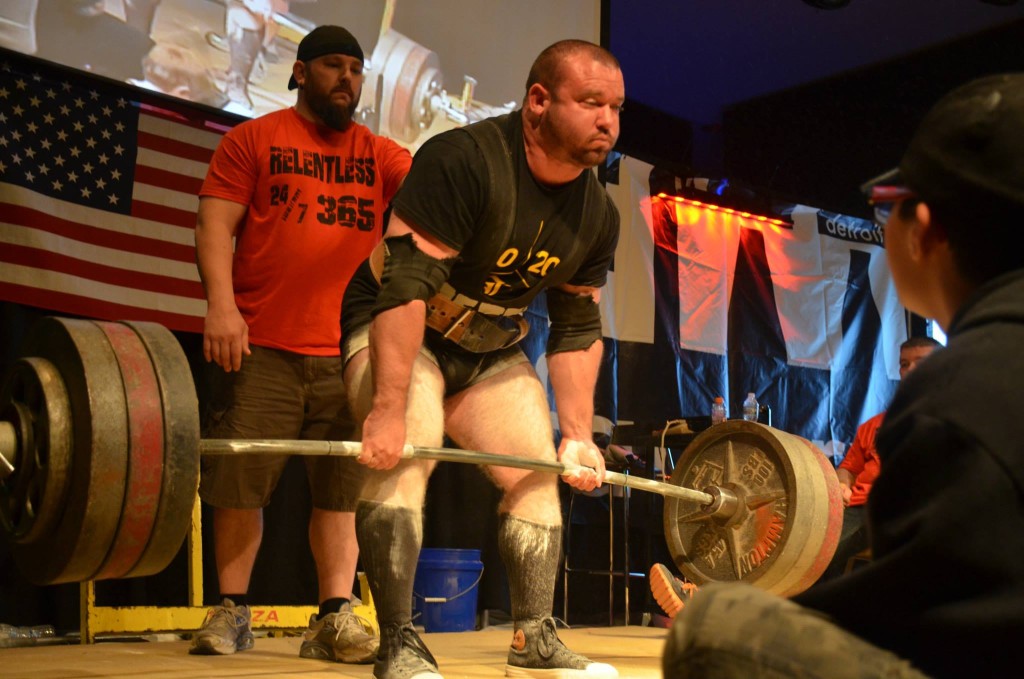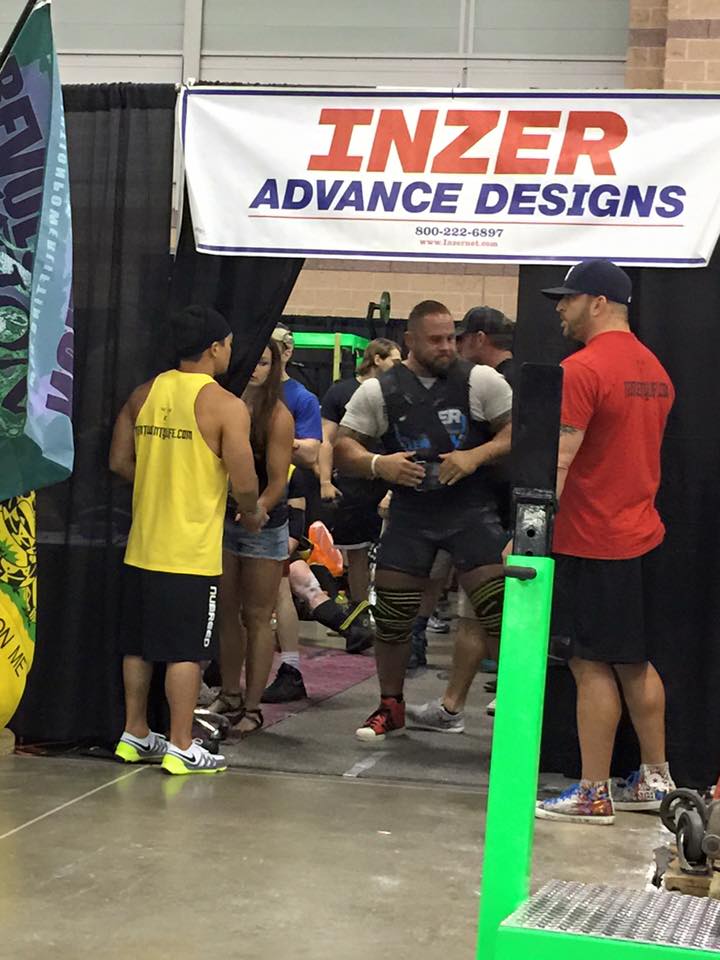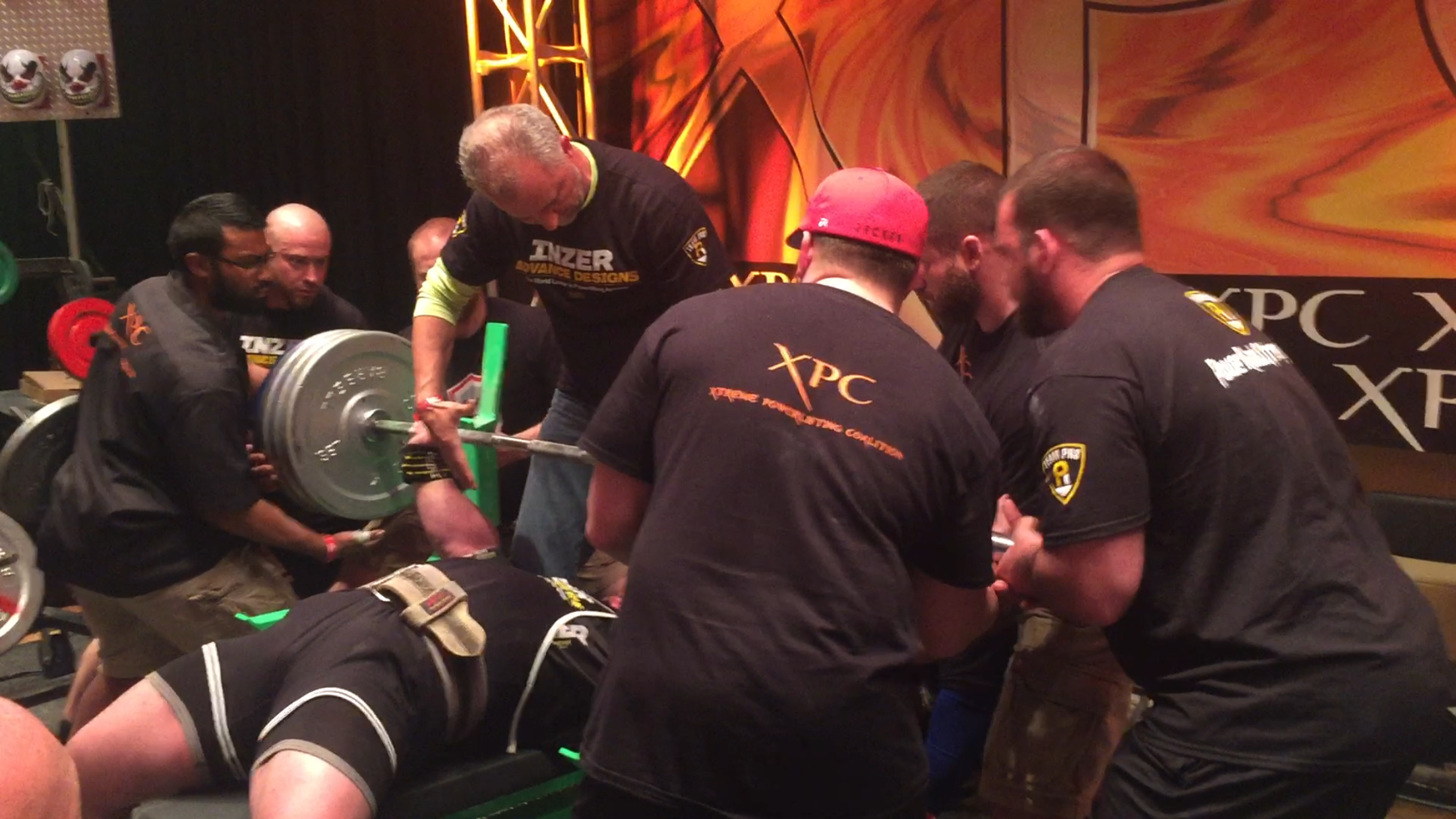
11 Jun Five Things You Learn While Being a Judge in Powerlifting
By Derek Wilcox
Sitting in the judge’s chair at a powerlifting meet, or being a referee/official during any sporting event, is a pretty rough job. In sports like baseball and football etc., you generally have at least one group of people who completely disagree with the majority of the calls that you make. In powerlifting, I imagine this group would be called the internet warriors, but that’s a slightly different story. In my experience over the last 12 years in the sport, the only time judges are paid much attention is when they throw a red light. No one comes to talk to you after a lift if you gave white lights. You may as well be another person sitting in the crowd that the lifter won’t even pay attention to. After giving a red light for a lift that had an infraction of some sort, I received every response ranging from, “Excuse me sir, what did I get the red for?” (which is the appropriate response in every situation that I know of, or have seen in the sport) to also receiving death threats, stares and being cursed at. I certainly don’t claim to make every call 100% right, but to err is human and being a judge is much tougher than most people give credit for when you’ve never been in the judge’s seat. So, for this population I want to give you five of many, many things you learn when you are a judge at a powerlifting meet.
Who can handle themselves as adults and who cannot.
As I referred to above, there are always instances of good, mature reactions to having a lift turned down and then there are the opposite. The most complaining and temper tantrums I have seen have come at the local level of the sport and it seems like they simply weren’t held to good standards and training getting ready for the competition. As soon as anyone steps out of that world and into higher-level meets they almost always quickly understand that standards are higher at a national, international, or professional meet. This is accepted by higher-level lifters and they prepare for the strictest judging, just in case the calls are very tight that day. You almost never see good, or especially experienced lifters pitching fits at judges when a lift is turned down. They simply adjust what went wrong for the next lift and carry on. So, for you younger lifters, who are relatively new to the sport, just remember – when you see someone pitching a fit after lift is turned down and bad mouthing officials, that it is NOT acceptable in any regard and never something you should emulate. It is simply the lifter’s immaturity and insecurity showing. Even if the judge is making a terrible call, it is still not acceptable in the least to act this way.
It seems some lifters perform magic.
Everyone has seen lifts from a powerlifting meet that look absolutely awful on the Internet in the past. A fair amount of these videos are probably worth the criticism to a certain extent, however, that’s not always the case. After sitting in the judges chair for a long time there are many lifts that I would have never thought I would have passed, or turned down after seeing the video from a front angle. There are many close stance squatters that look like they bury lifts without a doubt from the front, but yet when you look from the judge’s position on the side there hips don’t go as low as it seems. The opposite is also true with wide stance squatters. You would be amazed at how bad a real wide stance squat can look from the front on video, yet the judges give it white lights from the sides. This has especially been the case for me over the last 10 years. I’ve had many judges come up to me and inform me they were 100% ready to red light all of my squats because of how they look on video, yet they end up giving white lights because my squat technique was not intended to be judged from the front because it looks legitimate from the side positions and that’s what matters. For this reason, I’ve only bombed on squats one time in my entire powerlifting career, even though it seems like I’ve squatted 10 inches above parallel for that long as well. Things like lockouts on deadlifts look dramatically different from the front and from the side as well. From the front you cannot see if someone’s knees are slightly bent a lot of times and if you are looking from the head judge’s position on the bench, you can also miss someone’s elbows being completely locked out if they have them turned the right way.
How miserable it is sitting in a chair all day.
Not only does your body feel awful from staying in one place seated through the day, your brain also starts to feel numb by the time deadlifts roll around. You just turn into an automated machine looking at body parts and the bar for God knows how long during the meet. An example of this is many lifters coming up to me after the meet is finished and asking about details of their individual lift. Even though I obviously was paying attention to their lift intently, I have no idea a lot of the times which one it was because they all mesh together in your memory. A little simple math can try to put this in perspective. At a good-sized meet, you might have 45 lifters or so. Just in the case of squats, you will have three flights of 15 lifters a piece. All 45 lifters will have at least three attempts on the platform, coming every 60 seconds. That means you intently watch and judge 135 squats in just a little over two hours. Not to mention, you are normally trying to coordinate the spotters and loaders to have the correct weight on with rack heights etc. on the platform. After bench press, there are normally more people that jump into the meet, which would put the total lift count up around 300 on the platform. Perhaps another 150 lifts occur during deadlifts and by then you are beginning to approach 500 different lifts that you have had to watch and evaluate. Pretty easy to lose track of one or two in 400-500 individual lifts!
Miraculously, strangers will believe you do not like them personally.
This one has blown my mind almost more than anything in my experiences judging. I’m tempted to say that at least once per meet I have judged, someone told me that, “’insert lifter name here’ thinks you don’t like them because you gave a red light on their lift”. This is almost always someone I have never met and could not recognize if someone told me their name. Often times, this is just a result of being new to the sport, or not having the confidence to come and ask what happened during their lift. When this happens, they normally continue to make the same mistake.
Communicating with the judge is priceless.
This builds on the last point I made above, but this is a lesson I learned as a lifter and a judge. It is another sign of an experienced lifter compared to a novice lifter. On occasion, novice level lifters will think that if their buddy/training partner/grandmother say their lift was good then who cares what the judge says because they are stupid, right? I’m sure you can imagine how well this works out for them in competition. Another case of “it’s too late now,” is when a judge is approached after a meet is over and confronted on how bad it was that they kept turning down a particular lifter’s attempt because of reason “X,” when it was never the case to begin with and it was actually an entirely different reason. If the lifter would have communicated with the judge after the first lift was done, then they could have avoided bombing out, or missing other lifts. Instead, they just assumed and/or asked their buddies why they turned it down. These kinds of situations are extremely easy to avoid and it just takes a little bit of maturity and fortitude to ask what the issue was. This can also work the other way in things like squat depth, or the length of the pause on bench press. You might be squatting much lower than is actually necessary, or pausing longer than is necessary, but you generally won’t know that unless you ask. That can be the difference in getting a third attempt on that day, or not!
I’m sure many of those who have been in the chair many times are likely sitting here, reading this and nodding your head, or chuckling here and there. For those of you that have not, I hope this gives you some added perspective and understanding on why things happen and what you can do to make your powerlifting experience better.
Derek Wilcox
Latest posts by Derek Wilcox (see all)
- Derek Wilcox: Strong(ish) Garagebell Chronicles: Powerlifter In A Weightlifting Meet! - May 3, 2018
- Derek Wilcox: Strong(ish) Garagebell Chronicles: Getting Leaner, Stronger And Out Of Breath! - March 27, 2018
- Derek Wilcox: Strong(ish) Garagebell Chronicles: Weightlifting Offseason Activities - March 13, 2018








Sorry, the comment form is closed at this time.